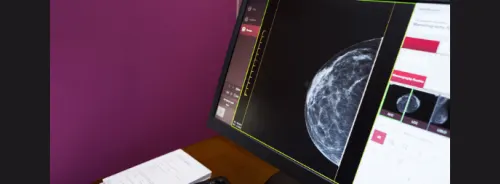In an era where health apps reign supreme, promising convenience and empowerment, a sobering reality emerges: many of these apps designed for women carry significant privacy and safety risks. Recent research conducted by teams from University College London and King’s College London has shed light on the extent of these dangers, presenting their findings at the ACM Conference on Human Factors in Computing Systems (CHI) 2024 on May 14.
Unveiling Vulnerabilities in Women's Health Apps
At the heart of the issue lies the sensitive nature of the data these apps handle. From intimate details of menstrual cycles to fertility information, millions of women entrust these applications with their most personal health data. However, the analysis conducted by the research teams revealed alarming lapses in privacy practices across the board. The examination focused on 20 of the most popular female health apps available in the UK and USA, drawing attention to the discrepancies between stated privacy policies and actual practices. One glaring revelation was the potential accessibility of user data by law enforcement or security authorities—a fact inadequately addressed by the majority of apps scrutinised.
Under Scrutiny, Women's Health Apps show many risks
Moreover, while some apps made token efforts to acknowledge the sensitivity of menstrual data in their privacy policies, the overarching trend was one of negligence. Particularly concerning were the practices of pregnancy tracking apps, which not only solicited potentially incriminating information from users but also lacked adequate mechanisms for data deletion, thereby exposing users to grave physical safety risks in regions where abortion remains illegal.
- 35% of the apps claimed not to share personal data with third parties in their data safety sections, but this was contradicted in their privacy policies by describing some level of third-party sharing.
- 50% provided explicit assurance that users’ health data would not be shared with advertisers but were ambiguous about whether this also included data collected through using the app.
- 45% of privacy policies outlined a lack of responsibility for the practices of any third parties, despite also claiming to vet them.
Data Dangers: personal information might be compromised
Dr. Ruba Abu-Salma, lead investigator of the study, underscored the gravity of the situation, emphasizing how the mishandling of such sensitive data could have far-reaching consequences, from workplace discrimination to criminal blackmail, disproportionately affecting women in jurisdictions with restrictive reproductive rights. A closer examination of privacy policies and data safety labels revealed a disconcerting reality. Despite claims of data protection, many apps engaged in third-party sharing, often contradicting assurances provided to users. The ambiguity surrounding data sharing with advertisers further eroded trust, leaving users in the dark about the fate of their personal information.
Privacy Pitfalls: Safeguarding Women's Health Data in the Digital Age
Perhaps most troubling was the revelation that users’ sexual and reproductive data were linked to their online activities, posing a risk of de-anonymization and potential harm. Lisa Malki, first author of the paper, highlighted the need for developers to recognise the unique sensitivities surrounding period and fertility data, urging a shift towards a more conscientious approach to privacy and safety. The study’s findings serve as a wake-up call to both app developers and regulatory bodies. It is imperative that developers acknowledge the nuanced privacy and safety risks inherent in women’s health apps and take proactive steps to mitigate them. Furthermore, regulatory frameworks must evolve to provide greater protection for users, holding developers accountable for their practices.
In an age where technology increasingly intersects with personal health, the onus is on all stakeholders to prioritise the well-being and privacy of users. Only through collective action can we ensure that women’s health apps truly empower users without compromising their safety and privacy.
Source: ACM Conference on Human Factors in Computing Systems (CHI)
Image Credit: iStock







